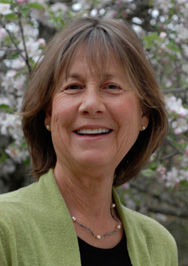As Father’s Day approaches, I wish to honor the fathers who tirelessly work our soils, prune our vines and harvest the grapes that bring depth of living and notoriety to our Sonoma County community.
In an article I wrote last year for Hispanic Heritage Month, Arturo Robledo said, “Sundays, I wake up with my wife. Then come the grandchildren like presents and we take breakfast. I’m very happy because I work in the vineyard and it’s my life.”
This cherishing of family and the vines — it prevails with so many of the men who tend our vineyards in Sonoma County. What would our community be without their deep connection to the land, their immeasurable passion and dedication?
I first met one of the great fathers of wine, Jacques Puisais, a renowned French oenologist and founder of the International Academy of Wine, at the inaugural Focus on Chardonnay hosted by Sonoma-Cutrer in the summer of 1986. This international symposium gathered 20 leading American and French producers of Chardonnay. Sharing decades-long observations and techniques, they explored the raison d’étre of the
Chardonnay grape.
The reason I am remembering this symposium and Jacques Puisais now is that of the many discoveries of that historic event, what has stayed with me is his concept of winegrowing as a three-legged stool. He encouraged us to think of “one leg of the stool as soil, a second as climate and the last as the work of man. To be seated comfortably, every leg of the stool must be equal. It is the same with wine.”
With man’s intervention being of such great importance, I appreciate the fathers who nurture our vineyards. Especially considering that, “Winemaking must be approached not as a year-to-year occupation, but as a long-term commitment,” believes Puisais. Sounds a lot like fatherhood.
We know that viticulture experiments take at least 20 years, and at least 10 years for roots to reach full maturity. Thus, the loyalty, reliability and decades long understanding of a particular plot of land by the dedicated men executing this work is our hometown advantage in creating world-class wines.
It is common in Sonoma County for grandfathers and fathers to mentor their sons in learning vineyard practices. This training encompasses a sense of pride passed from one generation to the next.
Like fatherhood, vineyard work requires exquisite attention to detail. Focus, intelligence and concentration are demanded from the careful planting of the vines to the harvesting of the fruit. Intricacies of grafting a vine must be precise. Throughout the seasons of the vineyard, skill and accuracy are essential to maintain the integrity of the plant and the safety of people tending the vines.
One of the greatest legacies of the late renowned Winegrower Robert Young is that many of the same vineyard staff he hired as young men remain on the ranch today. These men, like Robert, pass their vineyard skills through their bloodlines. When I worked with the Young family years ago, the 39 people who comprised the Robert Young Vineyard team had collectively devoted more than 910 years to their work on that ranch.
The Young family is merely one of thousands passing along family traditions that keep farming vibrant in Sonoma County.
As Jacques Puisais said in his closing remarks 33 years ago, “It is the responsibility of man to maintain the soil and the vines. The soil must be nourished and the vines pruned and protected from disease. In pruning and training the vine we orient its life, we strengthen it and we allow it to reach for the best within itself.”
There are clearly many parallels between being a great father and cultivating exceptional grapes to ripeness. This Father’s Day join me in saluting fathers whose love and caring extend beyond their families providing the backbone of our Sonoma County wine industry.
Marie Gewirtz represents wine and food clients with marketing and communications in Sonoma County and throughout the world. She can be reached at wi*******@so********.com.
58
F
Healdsburg
December 23, 2024








